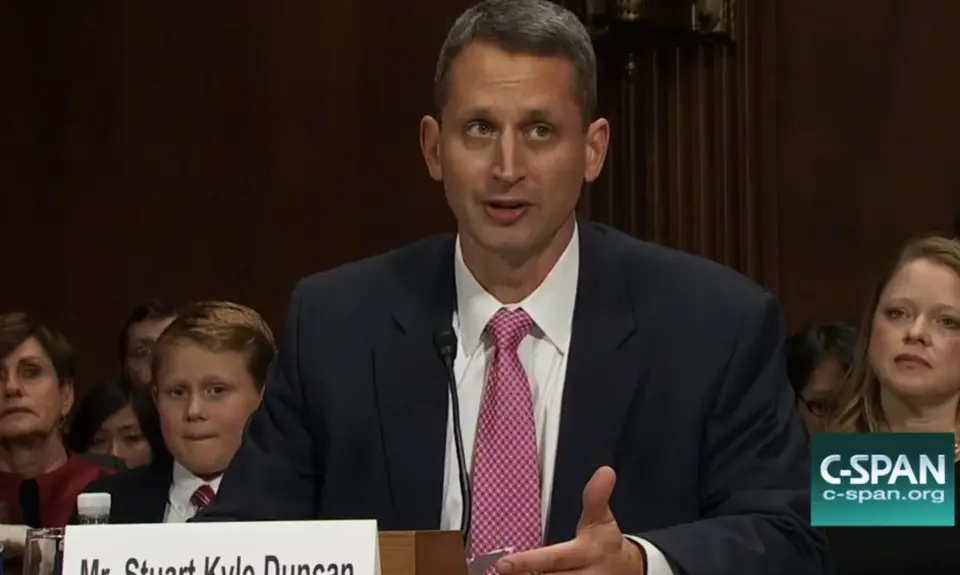“Confirmed Judges, Confirmed Fears” is a blog series documenting the harmful impact of President Trump’s judges on Americans’ rights and liberties. Cases in the series can be found by issue and by judge at this link.
Trump Fifth Circuit judge Kyle Duncan cast the deciding vote to stop a district court from even allowing discovery of important information about an employer’s failure to classify a number of employees as eligible for overtime pay under the Fair Labor Standards Act (FLSA). The June 2020 case is In re Schlumberger Technology Corp.
A lawsuit was filed against Schlumberger Technology Corporation (STC), a large oilfield services company, for violating the FLSA and Louisiana law by failing to classify a number of its employees as eligible for overtime pay. As part of pretrial discovery, a deposition was taken of James Hanley, a former STC consultant who later went to work for STC’s outside law firm. At his deposition, Hanley testified about the contents of a report to STC participated in by attorneys from the firm that concerned the FLSA status of the positions at issue. The plaintiffs followed up by subpoenaing three such classification reviews that Hanley was involved in, but STC moved to quash the subpoenas and to strike the parts of his deposition transcript where he discussed such reviews, arguing that the information violated attorney-client privilege even though STC had allowed Hanley to testify.
The district court denied STC’s motion and sided with the plaintiffs on the requested discovery, determining that STC had waived the privilege by claiming that it had made good faith efforts to comply with FLSA. STC went straight to the Fifth Circuit court of appeals even while the case was still pending, seeking the unusual remedy of a writ of mandamus to compel the district court to grant its motion, strike part of Hanley’s deposition, and forbid disclosure of the classification reports.
In a 2-1 decision in which Duncan provided the deciding vote, the Fifth Circuit granted STC a writ of mandamus. The majority claimed that STC had a “clear and indisputable” right to such relief because, based on a previous Fifth Circuit case, STC had not waived the attorney-client privilege since it did not specifically mention communication with attorneys in arguing that it had acted in good faith concerning the FLSA.
Judge James Dennis dissented. He pointed out that the previous Fifth Circuit decision relied on by the majority was decided under Mississippi law, not federal common law as in this case. The prior case was thus not “binding” on the district court, and other cases had found an implied waiver in such circumstances. Accordingly, Dennis concluded that STC had not shown that it had a “clear and indisputable” right to the extraordinary relief of mandamus that it was seeking.
As a result of Duncan’s deciding vote, however, the potentially important information sought from STC and already provided by a witness cannot be used in the FLSA claim against it. This will likely make it harder to prove that STC has improperly deprived workers of overtime pay.
